A new outlet for sovereign Indigenous cannabis on Manitoulin Island is now open.
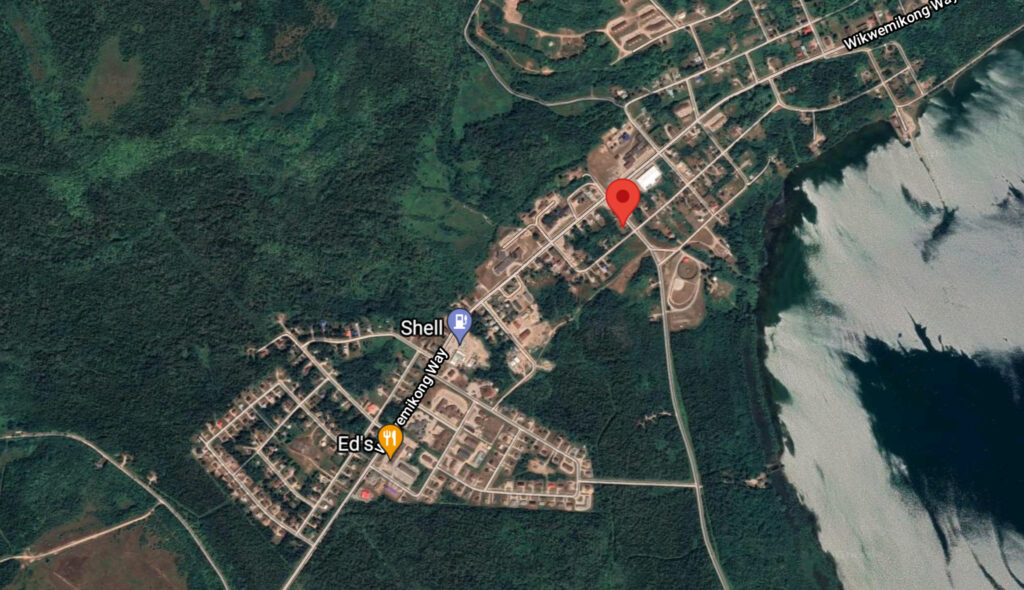
WIKWEMIKONG – With the opening of Perfectly Pampered Aesthetics and Herbal Remedies, medicinal Indigenous cannabis is now available from a new storefront at 22 Kaboni Road in Wikwemikong Unceded Territory. Wikwemikong is located on the east side of Manitoulin Island in Lake Huron. With over 8000 members belonging to three different Anishinabek nations – the Potawatomi, the Ojibwe, and the Odawa – Wikwemikong is the largest Indigenous community on the Island.
Although Wikwemikong has a long and proud tradition of political sovereignty – the lands of the First Nation are unceded, a fact recognized by the 1836 treaty signed by Lieutenant-Governor Sir Francis Bond Head – the Indian Act Band Council of Wikwemikong has stymied attempts by traditional people to open their own cannabis stores, and has instead opted to apply for a Provincial cannabis license through its corporation, the Wikwemikong Development Commission (WDC).
That hasn’t stopped Matthew Bell, a Bear Clan member of the Potawatomi nation, from seeking a different path – one which his fiercely independent ancestors travelled themselves. Instead of operating under Canada’s licensing system – which was devised without consulting Indigenous people – Bell is taking a stand for sovereignty.
Just like the more than 250 sovereign Indigenous cannabis shops that have opened up in Indigenous communities across Canada, Bell is invoking his constitutionally protected Aboriginal and Treaty rights to provide medicine and an income for his family through the cannabis plant. Backed by political leaders like Hereditary Crane Clan Chief Del Riley – one of the authors and key negotiators in enshrining protection for Indigenous rights in the constitution – Bell has joined an Indigenous movement for economic sovereignty in opening his store.
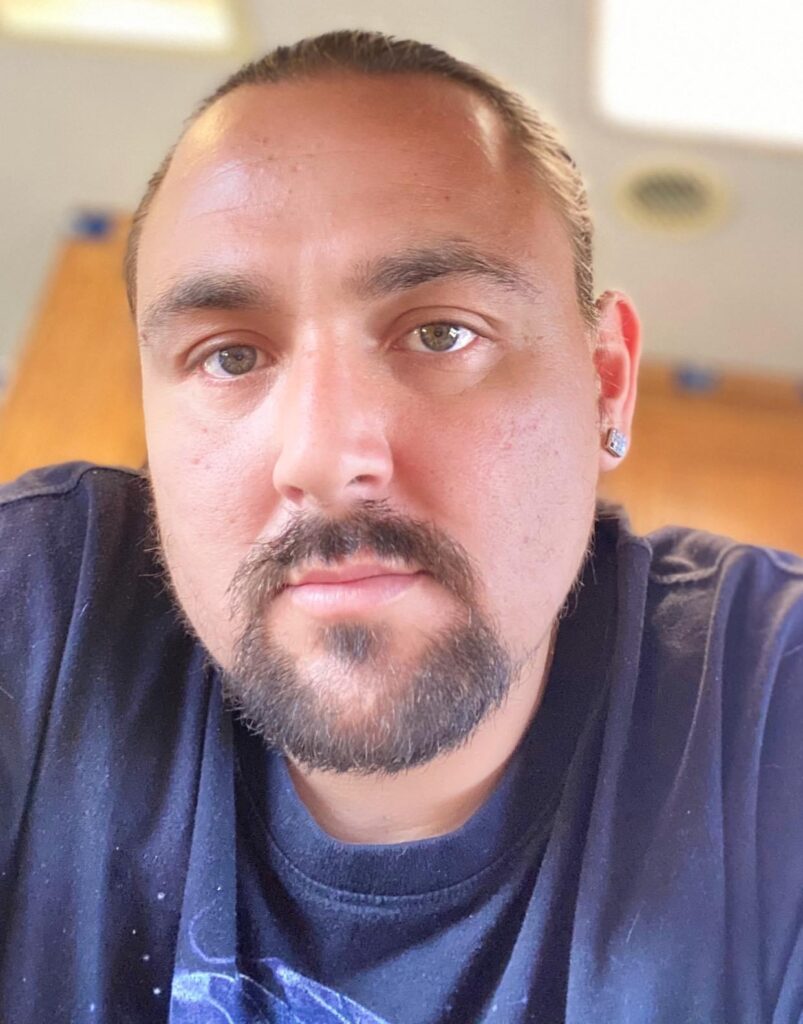
Making the path by walking it
Like many other Indigenous cannabis enterprises, Bell is making the path by walking it. Following his dreams, he started with what he has, and opened his shop in a trailer outside his home.
One of the main things that Bell says keeps customers returning to Perfectly Pampered Aesthetics and Herbal Remedies is his access to some of the most exotic strains of cannabis. Due to his strong relationships with expert medicinal cannabis growers, Bell often has newly developed strains before anyone else in the area.
He’s currently one of the very few people to have the newly developed strain Apple and Bananas on his dispensary shelves. Apples and Bananas is a powerful hybrid with high THC content which provides a happy and euphoric feeling with medical applications for treating stress, PTSD, and depression.
Bell is also moving into extracts and vape pens. He is currently looking to get his own product line of Flo Vape pens into other Indigenous cannabis stores. The vape pen uses all Delta-9 extracts to provide an effective dose of medicine. As Bell puts it, “I always choose quality over quantity.”
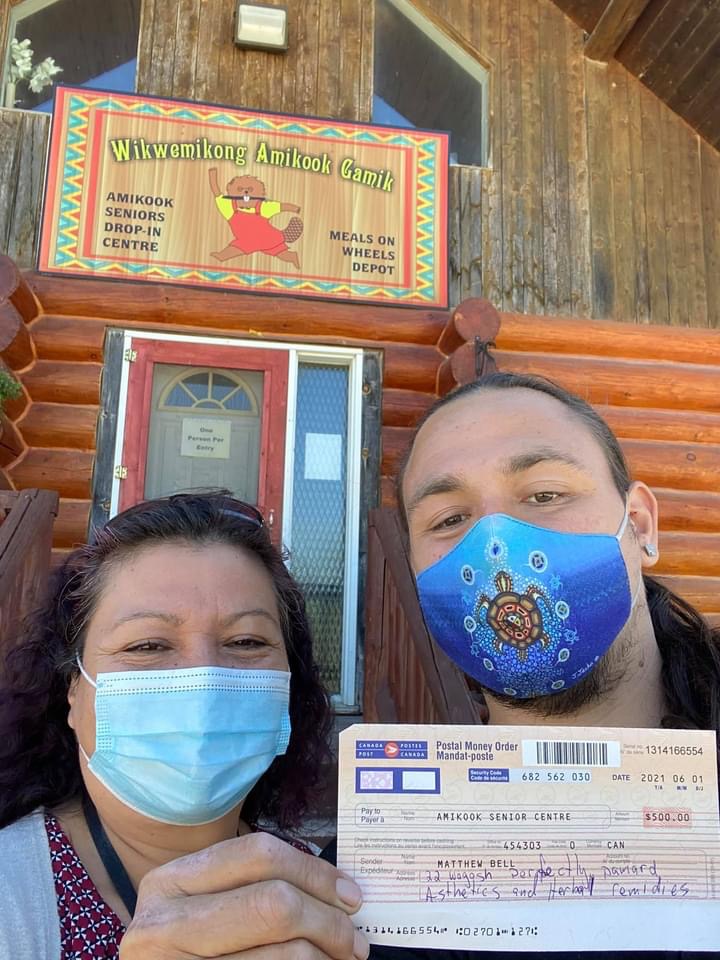
Giving back to the community and fighting opioid addiction
One major motivation for Bell in starting his shop is to use cannabis to treat the opioid epidemic in Wikwemikong. Bell explains that the situation is critical, with overdoses from street narcotics spreading havoc and sorrow in the community.
“Medicinal cannabis can definitely help people to get off hard drugs. I have seen that happen with my own eyes, and I have a number of clients that I help with that” said Bell. According to Bell, the “overwhelming majority” of his clients come from Wikwemikong, and they appreciate that they no longer have to travel to other territories to get the medicines they need.
The cannabis regime promoted by the Federal government and Province is strictly recreational, and providers are prohibited from giving any medical advice in the use of cannabis to treat ailments.
Bell strongly believes that the growing Indigenous cannabis industry can support other sectors of the economy, and he is committed to giving back to the community. He recently made a $500 donation to the Amikook Seniors Drop-in Centre. He has also made a $250 donation to the Day Star community thrift shop and drop in centre and another $250 donation to the local opioid treatment centre. Bell holds that a rising tide will lift all boats, and says “as my profits go up, so will the amount of my donations.”
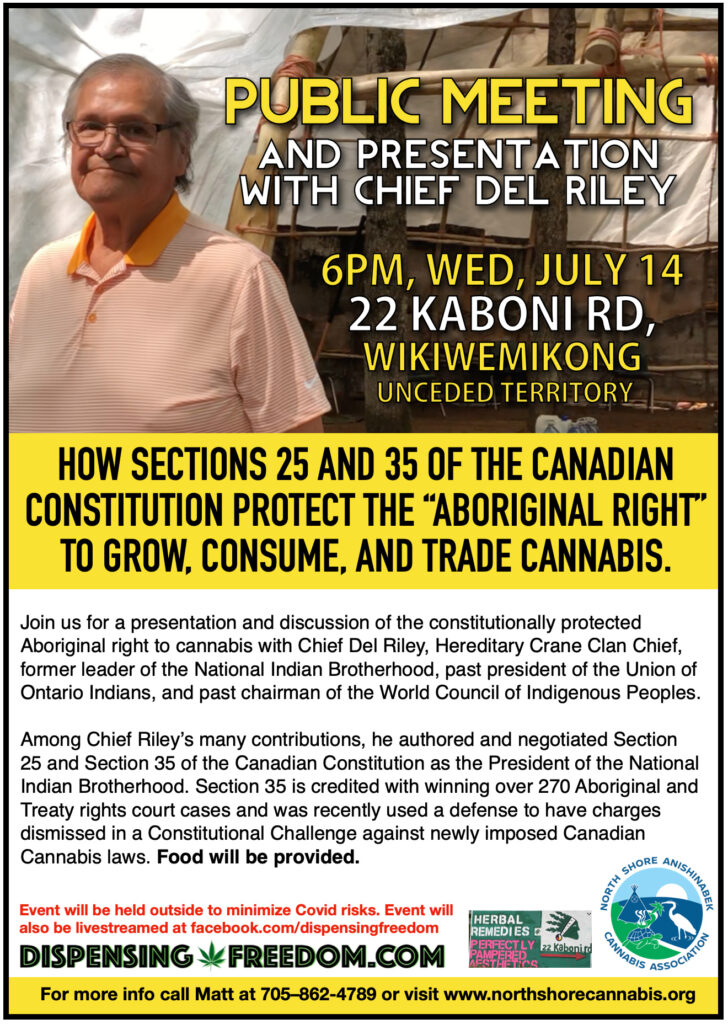
From an unbroken matrilineal Indigenous line
Although Bell was born and raised in Toronto, his mother was born and raised in Wikwemikong and he has an unbroken matrilineal Indigenous line of descent tied to his unceded homelands on Manitoulin Island. He belongs to the Potawatomi Bear Clan and is a “non-treaty Indian” living on his people’s unceded homelands. The term non-treaty refers to the fact that the British Crown failed to make treaties with many different Indigenous peoples across Canada, and in many cases assumed sovereignty without ever having the land ceded to them by the Indigenous people who belonged to it.
Bell has a long background as an entrepreneur and a skilled tradesman. He received his Red Seal from the Ontario Masonry Training Centre and worked as a member of Local 2 Brick Layer’s Union Allied Crafts while in Toronto. Bell returned to Wikiwemikong in 2010, and settled down permanently to raise his three children there in 2016. After coming home, he started his own company, Bully Contracting, which provides a wide range of local services including snow plowing, snow removal, brick and stone masonry, yard maintenance and landscaping.
Bell’s first two years went well, as it snowed a lot, and he had 40-50 different homes under contract. However, according to Bell, “the last year was rough. It hardly snowed at all, and I had to find other ways to support my family.”
Bell has had a lifelong relationship with the cannabis plant – he began consuming cannabis at the age of 14 – but it wasn’t until he moved back to Manitoulin Island that he considered opening a dispensary. An inspiration was seeing the growth and success of other shops on Manitoulin Island. Led by Buddies Smoke Shop in Aundeck Omni Kaning, which was soon followed by four different shops in Sheguiandah First Nation, Bell could clearly see the benefit that Indigenous cannabis shops could bring.
“I visited all the other shops on the island,” said Bell. “They’re very good and were so helpful. They supported me, and supplied me with information, and gave me contacts in the industry. In general they’re very good people. They know what’s going on, they see the cause. Their goal is the same as mine.” That goal, according to Bell, is for Anishinaabe people to prosper in their own lands by using the cannabis plant as a way to build a sovereign economy outside of the control of the colonial system which has caused Indigenous people such harm.
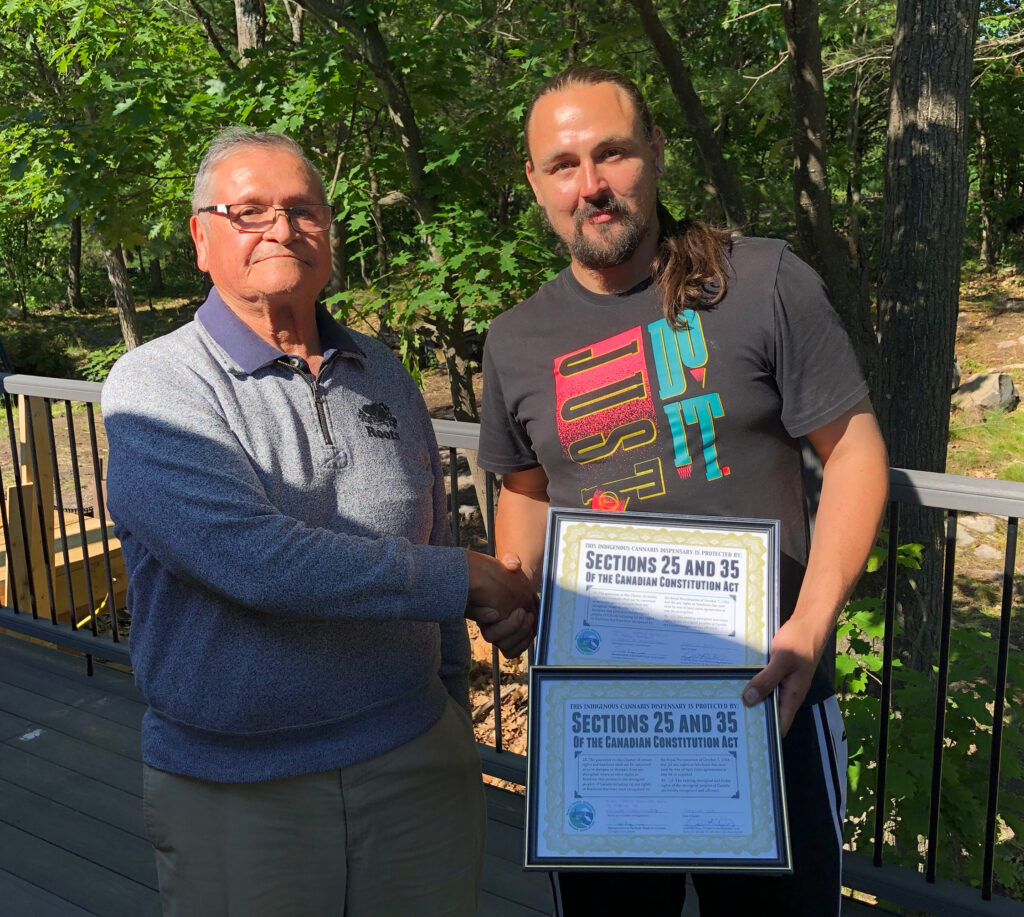
Growing the Indigenous Cannabis Movement
After picking up a copy of Dispensing Freedom from one of the Manitoulin dispensaries, Bell came into contact with the Indigenous cannabis movement, and began doing his own research about the Indigenous right to cannabis. Bell learned about the National Indigenous Medical Cannabis Association and the North Shore Anishinabek Cannabis Association (NSACA) – groups of Indigenous cannabis businesses that had emerged to promote the Indigenous right to cannabis and to develop product and safety standards to self-regulate the industry. Bell also contacted and discussed the legal implications of opening a shop with Lawyer Michael Swinwood, who has been leading the fight for Indigenous cannabis through a constitutional challenge to Canada’s Cannabis Act.
In June of 2021, Bell attended a general meeting of the NSACA where he met Chief Del Riley and other store owners involved in the association. The meeting, held in Shawanaga First Nation, provided a space for shop owners to talk about local challenges they were facing and to strategize solutions. Being part of the association has provided Bell with a sense of being part of a bigger movement that is working to raise awareness about Anishinaabe rights and jurisdiction.
According to Bell, “I feel like I’m finally finding purpose and becoming who I’m supposed to be. I still have a long road ahead of me, but I’m taking my time as patience is the number one rule in my life. Nothing good comes fast, anything that comes fast will be gone just as quickly as it came.”
Energized by the gathering, Bell now wants to bring some of that same energy and way of thinking to Wikwemikong and is thus organizing an event in the community with Chief Del Riley on July 14th at 5 pm at his shop at 22 Kaboni Dr. The event will be held outside so as to minimize Covid-19 risks, and is open to all. Bell is especially hopeful that Chief and Council and members of the Wikwemikong Police Service Board will attend and learn about what Chief Riley has to say about the nature of Aboriginal rights and the cannabis industry.
Band Council attempts to impose Federal and Provincial rules
Unfortunately, it hasn’t been a clear road to success for Bell. Aware of the Band Council’s attempts to prohibit cannabis in the community, he repeatedly tried to reach Duke Peltier, the Elected Chief of the Indian Act Band Council. “I sent him eight messages asking him for his thoughts and ideas, being respectful, asking him if he wanted to support my efforts to open up a medicinal dispensary. He never replied.”
The approach of Wikwemikong’s Indian Act Band Council to the cannabis industry has been to try and impose Canadian laws on unceded Anishinabek land. The Business Permit Policy of the Wikwemikong Development Commission requires that all cannabis businesses must “meet the retail requirements” of Canada’s Federal Cannabis Act, and receive authorization through the Province’s Cannabis Control Act. Any cannabis business would also require approval through a Band Council resolution and must consult with the Wiikwemkoong Tribal Police before opening.
The question raised by this policy is why would Provincial and Federal cannabis laws apply on unceded Wikwemikong lands, when it is not Canada’s land. Band Councils have no legal right to make their own cannabis laws, as according to Government of Canada spokesperson William Olscamp, (Media Relations for Indigenous Services Canada) it is the position of the Government of Canada that “there are no specific authorities or definitions in the Indian Act for the regulation of cannabis.”
If the Band Council is enforcing Canadian law and prohibiting non-treaty Indigenous people living on unceded lands from benefiting from cannabis, then Bell and others like him have a very strong argument that the Band Council is violating Canada’s own Constitution – specifically, Sections 25 and 35 which protect Aboriginal Rights.
In an interview with Rob Stevenson of Medicine Wheel Natural Healing, Chief Del Riley argues that Sections 25 and 35 of the Constitution are a shield that can stop any instrument of the Crown – Federal, Provincial, Municipal, or Band Council – from violating the treaties which were the foundation for the creation of Canada. “Indians” have Treaty and Aboriginal Rights, but Band Councils don’t – because they are administrative bodies of the Federal Government responsible for providing programs and services to Indians. Chief Riley argues that cannabis dispensary owners can use their Constitutionally protected rights to protect themselves from over-reaching Band Councils. But for long term success, Indigenous people need to get out from under the racist Indian Act, and put cannabis regulations and the Indigenous economy more generally, “under the authority of your traditional people. That will stop any land surrenders too.”
In the viewpoint of Chief Del Riley, cannabis is an aboriginal right, and Indigenous people have an inherent right to make medicine from or otherwise benefit from the cannabis plant on their own lands. The nation-to-nation treaties made with the Crown – long before the existence of Canada – reflect this. As Chief Riley explains, “our position on our rights is that they were totally intact as of 1814.” In Chief Riley’s view, Canadian Confederation and laws and policies such as the Indian Act remain racist and colonial attempts to control and oppress indigenous people, but they haven’t taken away any Indigenous rights.
According to Chief Riley, cannabis regulation, “raises another big issue, and that’s who really has the authority on the reserve. From my research and opinion now, it’s your traditional people, the ones that originally made the agreements. The problem with “Chief and Council” is that they were conjured up by John A. MacDonald at Confederation and [created by] the racist Indian Act. It was an attempt to take total control of all Chiefs and Councils – which it did – it made them totally responsible to the Minister [for Indian Affairs], not to the people. That’s why you end up with a lot of corruption across the country. They had to report to their boss, the Minister.”
Bell is hoping that the presentation from Chief Riley in Wikwemikong will go a long way towards addressing these issues and ensuring that the Wikwemikong Tribal Police Service understand that they are legally obliged to uphold Sections 25 and 35 of the Canadian Constitution in relation to the rights of the people to use and economically benefit from medicinal Indigenous cannabis.
Either way, Bell will continue to exercise his rights, and encourages everyone looking for high quality medicinal cannabis to stop by his shop for a visit.
Elected Chief Duke Peltier, the Wikwemikong Tribal Police Service and the Wiikwemkoong Unceded Territory Band Council were asked for comment in the writing of this article, but did not reply to the request for interviews.


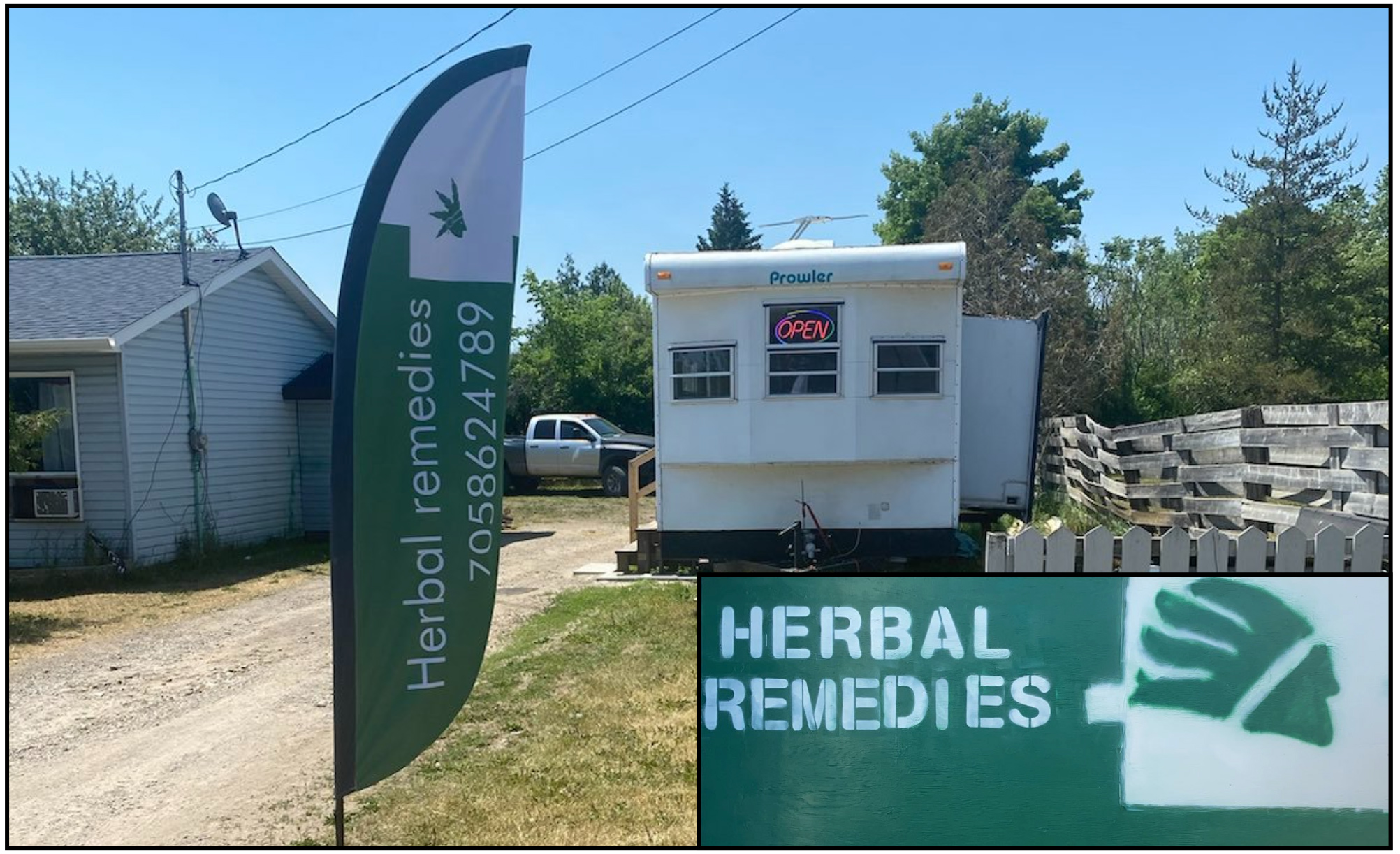









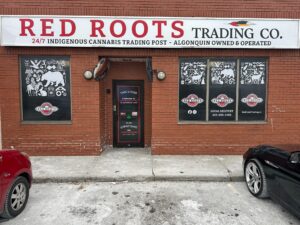

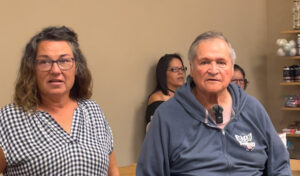
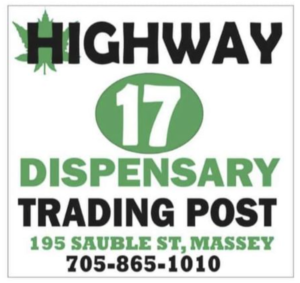
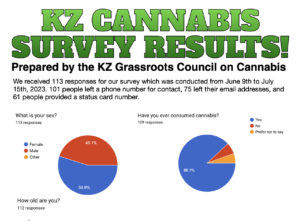
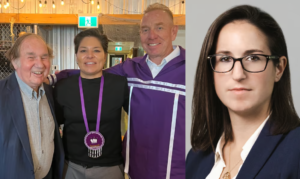
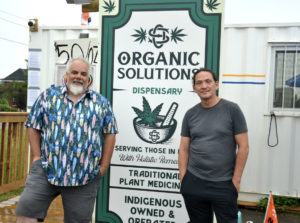
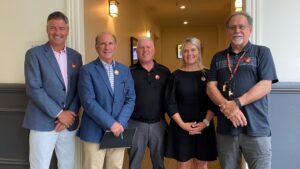


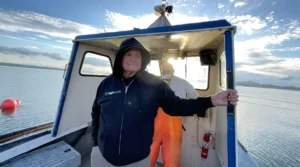
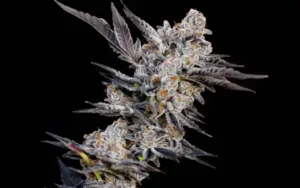







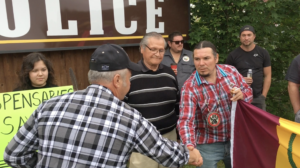

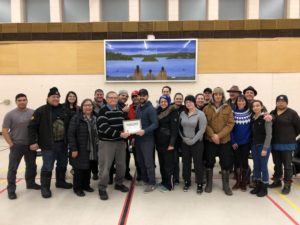
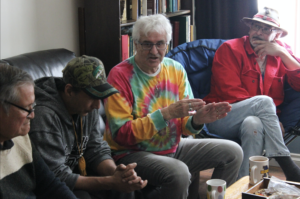
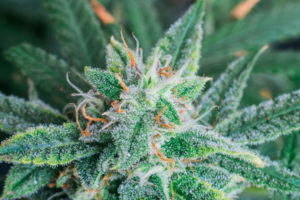
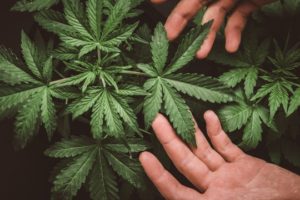
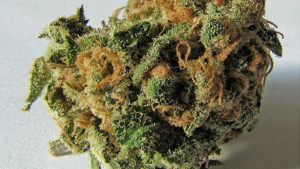

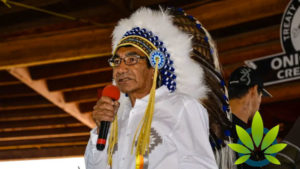
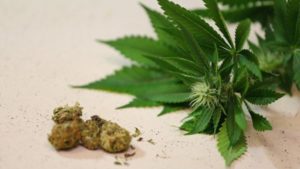
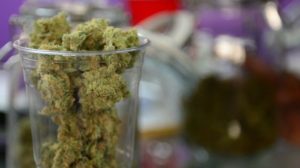
Comments are closed.